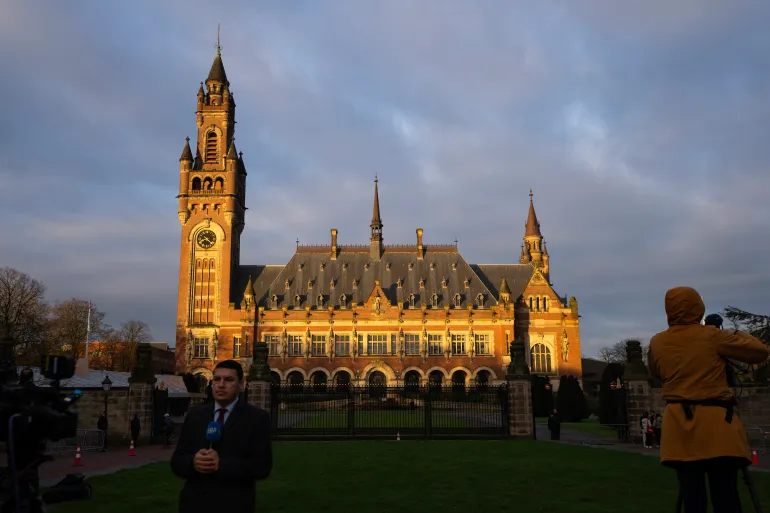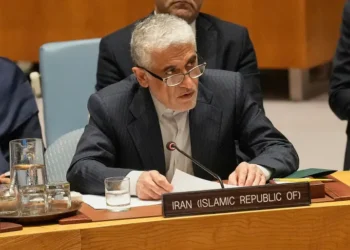Tom Fletcher, who heads the UN’s humanitarian agency (OCHA), has urged governments to “break the cycle of violence” and “defend humanitarian law” in Gaza and the occupied West Bank.
The UN official made the comments after visiting Jordan, Syria and Lebanon to meet aid teams, including those working in the occupied Palestinian territory.
He condemned the “sustained intensity” of Israel’s violence in Gaza, saying that there is nowhere safe for civilians in the Strip, with schools, hospitals and civilian infrastructure reduced to rubble.
Fletcher said that the agency deals with tough places to deliver humanitarian support. However, he stressed that Gaza is currently the most dangerous, in a year when more humanitarians have been killed than any on record.
“As a result, despite the massive humanitarian needs, it has become almost impossible to deliver even a fraction of the aid that is so urgently required. The Israeli authorities continue to deny us meaningful access – over 100 requests to access North Gaza were denied since 6 October.
“We are also now seeing the breakdown of law and order and the systematic armed looting of our supplies by local gangs.”
Tom Fletcher
The statement came amid reports of a deadly Israeli attack on an aid convoy in Gaza on Monday as well as the looting of a WFP convoy on Sunday.
Stephanie Tremblay, a spokesperson for the UN, disclosed that Israeli forces carried out an air strike on a World Food Programme (WFP) convoy in Gaza on Sunday, December 22, 2024, and that at least 23 of the trucks were plundered.
Tremblay said that the 66-truck convoy, which departed the Karem Abu Salem, or Kerem Shalom, crossing via the recently approved Philadelphi Corridor, was carrying food and non-food items to central Gaza. “Despite assurances from Israeli authorities that safety conditions would be in place, an air strike occurred,” the spokeswoman said.
She noted that the first 35 trucks of the convoy proceeded to their destination, reaching the warehouse without losses.
“However, the second half of the convoy was delayed by the [Israeli military]. News of the convoy’s movement spread, exposing them to looting along the route. Ultimately, out of the 66 trucks, only 43 successfully reached the warehouse, while the remaining 23 were lost to looting.”
Stephanie Tremblay
According to the International Medical Corps, medical supplies that were meant for field hospitals in Gaza were among the aid that was taken.
It said in a statement that of the 150 pallets that International Medical Corps was transporting in the convoy, 111 were looted, while 39 made it to the destination undisturbed.
Israeli forces bombed an aid convoy in central Gaza on Monday, killing four guards and wounding three others.
Separately, a report by Oxfam International detailed what it says are Israel’s tactics to starve Palestinians in Gaza.
The advocacy group asserted that Israel gave permission for 34 trucks of food and water to enter north Gaza over the past two and a half months, but “deliberate delays and systematic obstructions by the Israeli military meant that just 12 managed to distribute aid to starving Palestinian civilians.”
ICJ To Rule On Israel’s Aid Obligations To Palestinians

Meanwhile, the International Court of Justice said that it has received a request from the UN General Assembly for an advisory opinion on Israel’s obligations to facilitate aid provided to the Palestinian people by UN agencies, other global groups and third states.
The statement comes after the General Assembly voted last week to seek urgent clarification on the matter following Israel’s decision to ban the UN’s Palestinian refugee agency (UNRWA) as well as its obstruction of the work of other humanitarian groups in Gaza.
About 137 countries voted in favour of the Norway-drafted resolution, while Israel, the US and 10 other countries voted against it.
READ ALSO: 400,000 Candidates Awaits Results, WAEC Management Discusses Post-Payment Issues























